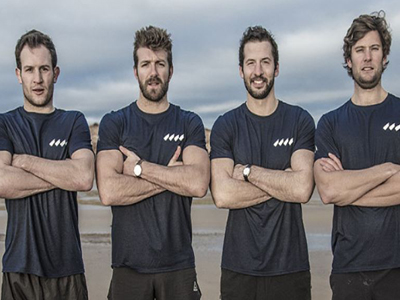I am really pleased to announce we have agreed to work with the Four Oarsmen, to help them prepare for their incredible journey. One, which will take every ounce of mental and physical fitness.
“MORE PEOPLE HAVE BEEN INTO SPACE OR CLIMBED EVEREST THAN HAVE ROWED THE ATLANTIC.”
That’s right, these four men have a mission to complete and with our help we hope they do it style.
The boys still need all the support they can get to raise enough money for the race and their charity so read on and see what they awaits them.
Setting off on the 12th of December 2017, The Four Oarsmen will be rowing more than 3,000 nautical miles across the world’s second largest ocean as part of the Talisker Whisky Atlantic Challenge. Once the Oarsmen leave the shores of La Gomera the elements, ungodly sleep patterns and stormy seas will slowly break them down both physically and mentally. Relying solely on their own manpower, routing and interpretation of the weather conditions they will not be allowed any outside assistance until they get a helping hand off the boat on arrival at English Harbour, Antigua.
TWO HOURS ON – two HOURS OFF
The Oarsmen will adopt a pattern of rowing for 2 hours, sleeping for 2 hours for the duration of the challenge. Sub-zero temperatures at night followed by 40 degree heat during the day makes for gruelling conditions. On top of this, 40ft waves and cramped sleeping quarters will make catching forty winks difficult a the best of times.
burning 12,000 calories per day
Sea water from the ocean will be processed through a solar powered desalination unit (water maker) producing approx. 6 gallons of water per day for cooking and hydration. Dried ration packs and any form of protein that can be caught from the ocean will fuel the engines; all necessary food, cooking gas, medical kit, and safety equipment for the entire crossing will need to be on-board from the moment we set off.
26fT OF Human in a 25ft boat
The Oarsmen are not a small bunch, all coming in at between 6ft4in and 6ft5in in height. As you can see from the ergonomic diagram below, living conditions will be unbelievably cramped and uncomfortable and maintaining good sanitary conditions and housekeeping practises on the boat will be an essential key to success, but more importantly survival.
TO SUPPORT THEM CLICK HERE AND MEET THE TEAM.

